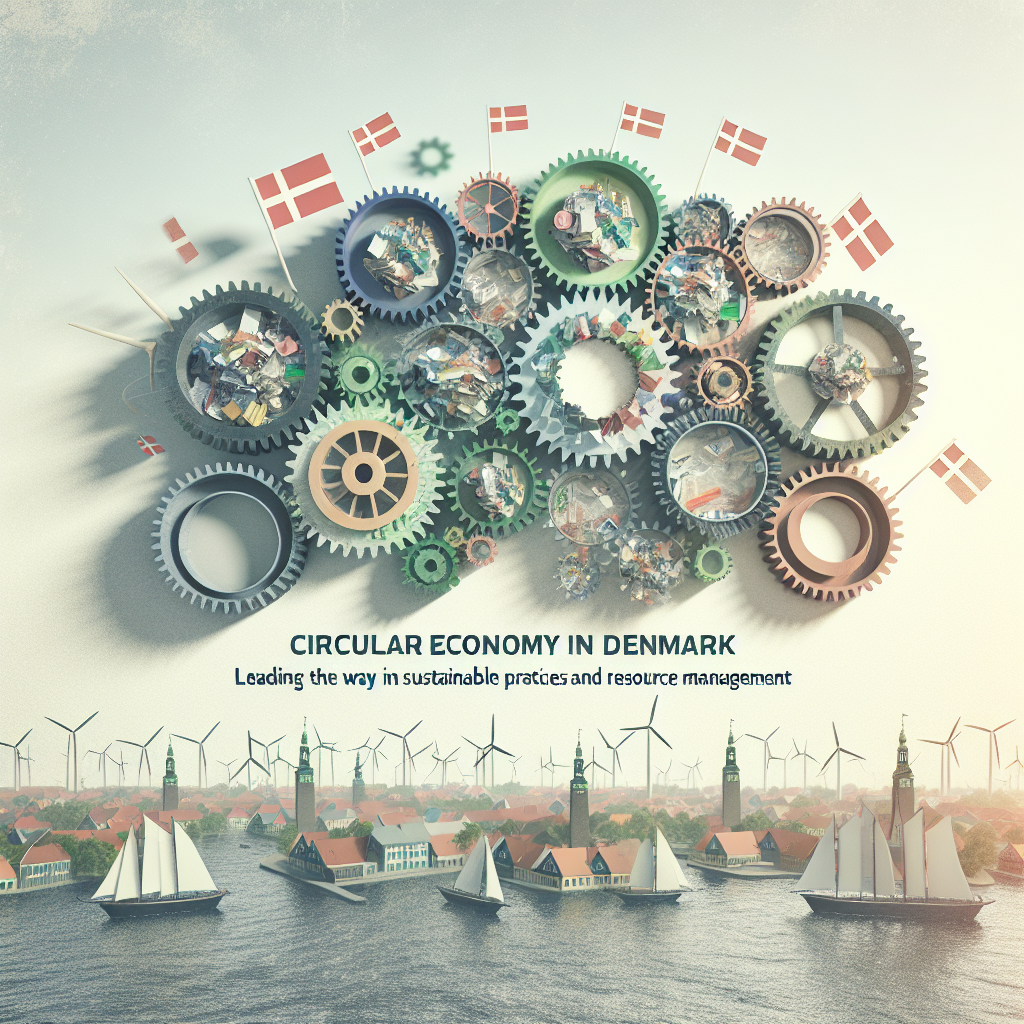As a macroeconomist specializing in Nordic countries, I have been closely following the circular economy initiatives in Denmark. In recent years, Denmark has emerged as a global leader in promoting sustainable and circular economic practices. With its commitment to reducing waste and maximizing the value of resources, Denmark has set an exemplary model for other countries to emulate.
The Concept of Circular Economy
The circular economy is a concept that aims to minimize waste and promote the sustainable use of resources. In a traditional linear economy, products are manufactured, used, and then discarded as waste. However, in a circular economy, the focus is on designing products that can be reused, repaired, and recycled, thus creating a closed-loop system where resources are continuously circulated within the economy.
Denmark has embraced the principles of the circular economy, recognizing the need to transition towards a more sustainable and resource-efficient economic model. By doing so, the country aims to reduce its environmental impact, decrease dependency on finite resources, and create new economic opportunities.
Danish Circular Economy Initiatives
Green Transition Strategy (Grøn Omstilling)
Denmark’s Green Transition Strategy is a comprehensive plan aimed at transforming the Danish economy into a more sustainable and circular one. The strategy encompasses various initiatives and measures to promote energy efficiency, sustainable transportation, waste reduction, and the development of green technologies.
- Energisektoren (Energy Sector): Denmark has invested heavily in renewable energy sources, such as wind power, to reduce its reliance on fossil fuels and decrease carbon emissions.
- Bæredygtig Transport (Sustainable Transportation): The Danish government has implemented policies to promote cycling, public transportation, and electric vehicles, reducing the environmental impact of transportation.
- Grøn Teknologi (Green Technology): Denmark supports the development of green technologies, such as waste-to-energy solutions and sustainable urban planning, to drive the transition towards a circular economy.
Circular Economy Action Plan (Cirkulær Økonomi Handlingsplan)
In 2018, Denmark launched its Circular Economy Action Plan, outlining specific targets and initiatives to promote circularity across different sectors of the economy. The plan focuses on waste management, sustainable production and consumption, and resource efficiency.
- Ressourceeffektivitet (Resource Efficiency): The action plan aims to improve the efficient use of resources, reduce waste generation, and encourage the recycling and reuse of materials.
- Cirkulær Indkøb (Circular Procurement): Denmark is promoting circular procurement practices, encouraging public institutions and businesses to prioritize the purchase of sustainable and durable products.
- Cirkulære Forretningsmodeller (Circular Business Models): The action plan supports the development of circular business models, such as product-as-a-service and sharing platforms, to extend product lifecycles and minimize waste.
Impact on the Danish Economy
The circular economy initiatives in Denmark have had a profound impact on the country’s economic landscape. By embracing sustainable practices and innovative technologies, Denmark has positioned itself as a hub for green and circular solutions, attracting investment and driving economic growth.
Furthermore, the transition towards a circular economy has created new business opportunities and jobs, particularly in sectors related to renewable energy, waste management, and sustainable manufacturing. Danish companies are developing cutting-edge technologies and solutions that have the potential for global scalability, contributing to Denmark’s reputation as a pioneer in sustainability.
Challenges and Future Outlook
While Denmark has made significant strides in advancing the circular economy, challenges remain in achieving a fully circular and sustainable economy. One of the key challenges is the need for widespread behavioral and cultural change to promote sustainable consumption and production practices.
Additionally, the transition towards a circular economy requires continued investment in research and development, as well as collaboration between the public and private sectors. It is essential for Denmark to maintain its commitment to innovation and sustainability to overcome these challenges and drive the circular economy forward.
Conclusion
Denmark’s circular economy initiatives have positioned the country as a global leader in sustainability and resource efficiency. Through strategic planning, innovative policies, and collaborative efforts, Denmark has demonstrated the potential for economic prosperity while minimizing its environmental impact. As a Nordic country with a rich tradition of environmental stewardship, Denmark serves as an inspiration for other nations aspiring to embrace the principles of the circular economy.
As a macroeconomist with a focus on Nordic countries, I am excited to see the continued progress and impact of Denmark’s circular economy initiatives. The country’s commitment to sustainability and innovation sets a positive example for the rest of the world, and I look forward to witnessing the ongoing transformation of the Danish economy towards a more circular and resilient future.





